¡Aqui estamos! Welcome to Havana – Aeropuerto International José Martí
After a long transatlantic flight, what’s the first thing you want to do when you get off the plane? Peeeeee! But best to hold on to that because we found no toilet in the luggage collection area. In fact, I had to hold on until we got outside the airport, crossed over to the parking lot side, and then had to pay (whatever you feel like), as a courtesy, because I didn’t see any sign saying you had to. They may hand you a wad of toilet paper as you won’t find any inside. Tip 1: Carry toilet paper around in Cuba and hand sanitizer as soap may or may not be there. The alcohol gel dispensers are empty – forget about those. Tip 2: I let Eric handle this part but you need to have cold hard cash in Cuba. Used to be they would say dollars, but now the Euro seem more like king here. The Cuban peso? Well, if you must.
It took some time for our luggage to come out. I was worried that maybe we were not allowed to have a suitcase full of so much medicine and other things but eventually, about 30 minutes or so after, our luggage came out. I really didn’t know what to expect at the airport. I was a bit nervous. We flew on our French passport, mais oui.
Passing through passport control was actually a breeze. We did have to pass our luggage through scanners before leaving the airport 😰. But it was all okay. Whew!
Stepping outside of the airport into the humid summer air was like someone had pushed me into a pressure cooker 🥵. It’s hot in Seville in the summer. No, scratch that, it can be an inferno in Seville in the summer but it’s a dry heat. I can almost handle a dry heat. In Cuba, I was set to always be sweaty, no matter what. Brought back memories. And the heat was going to play a role in our first experiences. . .
But let’s talk about our sweet ride – Aramis, our driver met us outside the terminal and asked us to wait while he went to get the car that would be our wheels for most of the 17/18 days in Cuba. When he pulled up in a 1953 Chevrelot, I thought of all the images I had seen in the past of Havana. American cars which apparently, Fidel tried to get rid of to the point that he had them buried. They have been tuned up and no longer resemble the rides from which they originated, with 4-wheel drive added, new engines, or Japanese parts to ensure they keep running. Any owner of one of these beauties treats her like a member of the family – or so I was told. Another fun fact, before any of these models were originally released in the USA, they were first tested in Cuba by the manufacturers so the Cubans always had them first. But that was then.
Oh NEPA!
First night in Havana
Dinner at a “local” restaurant. Many tourists. The food was mediocre and expensive for what it was, to be honest. I think my angst played into my first impressions. I was in observation mode. But I was too tired really to care. The atmosphere makes you think you are on a tropical holiday. Lovely staff. Many people work there much like in Spain. You almost forget exactly where you are. The price of our meal shocked us, but this wouldn’t be the last thing that surprised us about this complex country. Think, many layers of an onion.
We were staying several nights in casas particulares instead of hotels which we thought meant homestays where we would interact with Cuban families. But it was more of a B&B. We had a large triple room which was more like a 2-bedroom suite. Simple, clean, and spacious. Thank goodness for the AC but then . . .
When I was a toddler having yet to speak my first words, an incident happened that would be all too familiar to anyone who ever lived in Nigeria or any country with similar politico-economic design – the lights went out. And in the dark, which frankly I was already used to by that time, a tiny voice called out, “Oh NEPA!” to which relatives and household regulars responded, “Who was that? Did she speak?” The little voice was mine and what I yelled out, I wouldn’t have to explain to any of my fellow compatriotes but I’ll explain to you. NEPA – National Electric Power Authority, was the acronym that became the word, the insult, and the angst of life in Nigeria. Lagos was a place where having a generator was a luxury and a must. And after hearing the adults curse the power gods on many occasions it became evident to little me that THIS was the thing to do when you found yourself unexpectedly in the dark.
But I’m talking to you about Cuba why do I start off with a childhood memory? The lights have been out since midnight and I texted the dueña de la casa who tells me this doesn’t usually happen in this area of Havana and it should be back soon. 7:30 am lights are still out. It’s muggy in the room. And I start to recall this childhood memory. Only there it would be minutes because someone would have flipped on the switch of the generator by now in my mother’s house.
The lights returned the following day at 4:30 in the afternoon the following day just about the time that our guide, Felix, was preparing to have us move to another casa. It was as if they knew. What had happened, we’ll never know but we were most grateful for the return of the air conditioning in the 94% humidity.
The people
Saint Francis
Julio Cesar has a brother who lives in Havana. Like many of the Cuban people we met, Francis was friendly and welcoming. We gave him the suitcase of supplies, medicines, and feminine hygiene products we had packed for him and his wife, who works in a home for the elderly, to distribute to those who needed them. While this was an indirect way to hand things out, I honestly wasn’t sure what would have been better. I suppose even if we had handed it to a random person and that person subsequently turned around and sold it to several people, someone would have benefited. But this way felt more personal.
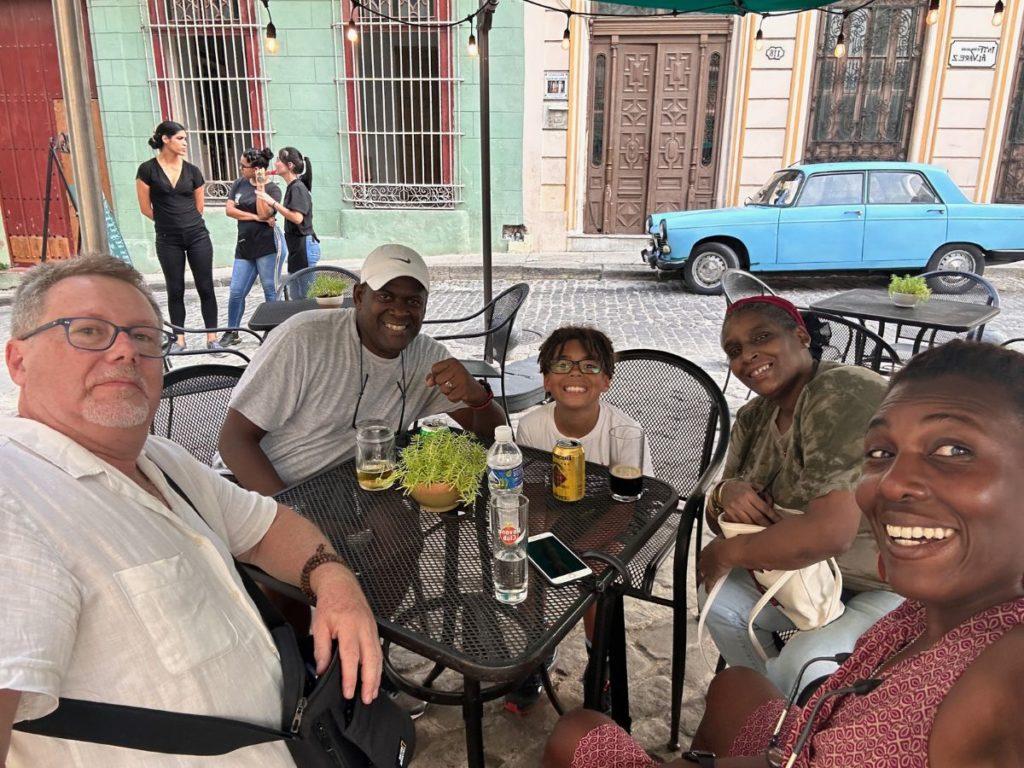
Me llamo Elizabeth, soy tu vezcina
We got conned. Eric was impatient waiting for Remi and me to emerge from the room and head out into the Instant Pot cooker that was on the streets of Havana, so he headed out on his own. When we came out, I found him talking to a Cuban woman who smiled when she saw us, happy it seemed to meet the family. I smiled, dubious, waiting to hear what the tale was. Me llamo Elizabeth, she said, soy ty vezcina. I live on the 2nd floor, if you ever need anything just knock. I’m going to my mother’s house to pick up my one-year-old. She fauned over Remi and I, and was happy to make a connection with an African. I continued with my dubious smile. I half believed her about being the neighbor though I was not 100% sure but since I had not seen the beginning of this conversation or been aware of where she had emerged, I went along with it. She walked along with us, apparently, Mom’s house was on the same path. She then went on to ask if we would be able to give her 10 euros so she could buy powdered milk. 10 euros seemed a bit steep and from what I had understood, supplies were bought at certain shops with coupons from the government. Any place taking euros like that would be geared towards tourists. I don’t generally like “throwing” money at people. I prefer to assist them instead by, taking them to the shop and purchasing what they need or something like that. But we had someplace to be and were in a hurry, so Eric gave her the money. I watched her as she walked down the street to a shop that did not exist.
A “friendly” con born of desperation. Whatever the motives, the result was the same. Somehow I would have preferred the truth. It’s a bit like the international scammers who assume that because you come from somewhere else, you must definitely be better off. So whatever YOU lose could never truly be a loss.
The necessity for a good cover story, I guess.
The Guides

Felix
Our guide Felix seems so worldly. He speaks English, French, and Spanish (of course). He also says he speaks some Italian. He is better equipped than many travelers I have met in my line of work, yet, he has never left Cuba. Travel is a luxury even on the smallest budget. What happens when it is not just the means to travel but the very right to travel that is in question? His insight into life in Cuba was very much appreciated. I had been afraid that people would be very guarded but he opened up (in discreet locals) about his Cuba and allowed us to ask questions I was not sure I would be permitted to.

Rosie
It wasn’t until Trinidad that we met Rosie. Rosie is 28. She studied to be a chemist with hopes of teaching chemistry but there were no jobs. If it wasn’t for her mother, she too may already have left Cuba. Rosie is charming and unlike several of the Cubans I had met until this point, she is not afraid to speak her mind… publically. When I told this to our driver, he was wide-eyed in surprise (and fear) and said, she could do that, she had less to lose. On July 11, 2021, thousands of Cubans took to the streets demanding change. That, of course, did not go well and change is yet to come. In the meantime, people hustle. Rosie, like many others, is fed up. She says she is lucky that she works in tourism because she can provide a bit for herself and her mother. She also told me that she would not have children – not here. Women are afraid to have children for whom they can’t find enough food or enough medicine should they be sick or what if they are sick during their pregnancy? It made me so sad to hear these words. She speaks them matter-of-fact-like, not afraid, just tired.
The Driver
“Para un cubano su coche es como la familia”. I am probably quoting him incorrectly but essentially what Aramis told us was that his car was like family. And he, a mechanic by trade (something that came in handy on several occasions), treated his 1953 Chevrolet like a princess. It was in wonderful condition both inside and out. I will not say it was the most comfortable ride of my life but it was an experience not to be forgotten. Aramis was friendly, professional, and genuinely interested in sharing. I sensed at the start that he was sizing us up. That has to be a necessity on this island nation. You don’t know on what side of the political divide someone is on and a slip of the tongue may cost you more than you are willing to make. We were free to speak as we like but depending on when and where, we could very well be putting him in danger and he had to stay when we were free to leave.
I truly enjoyed our conversations and the way he spoke freely (in the car) about his thoughts on Cuba today and yesterday.

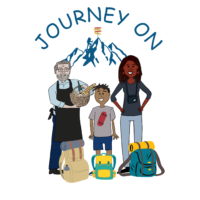

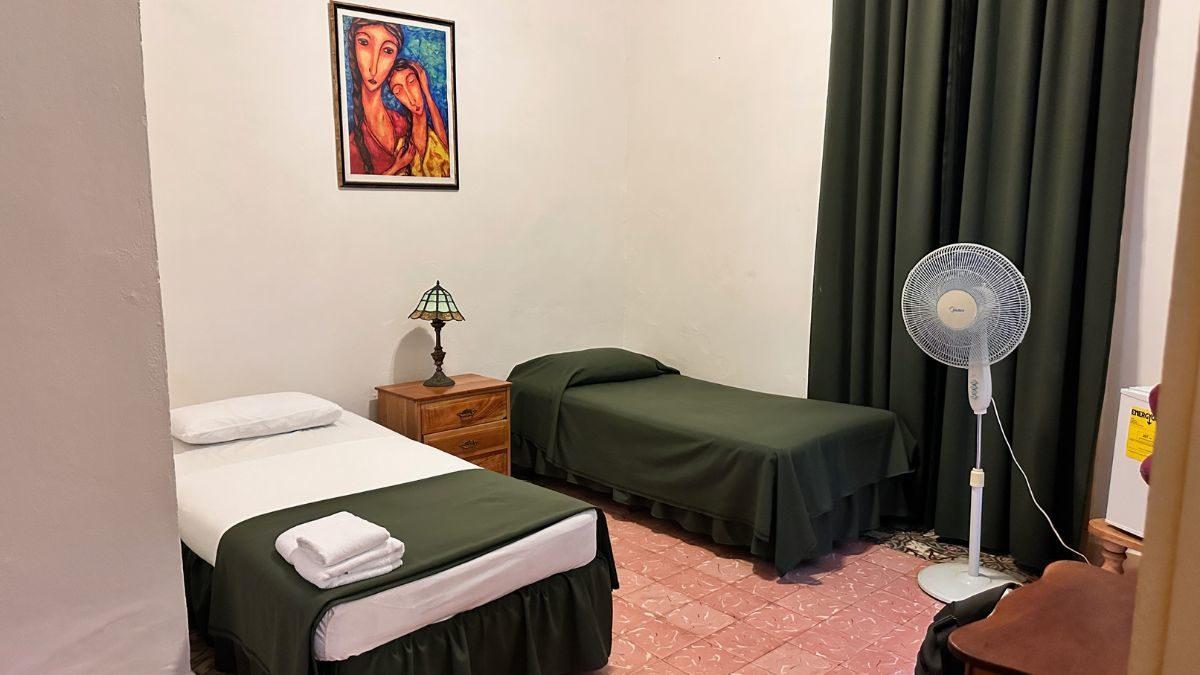
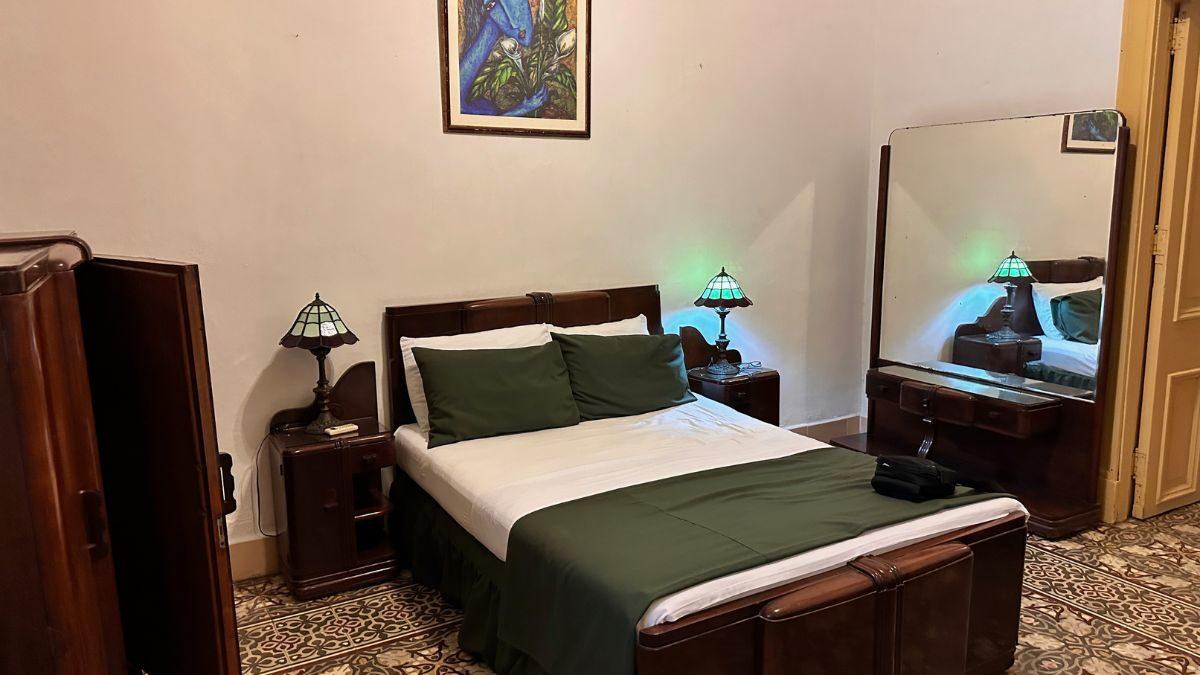
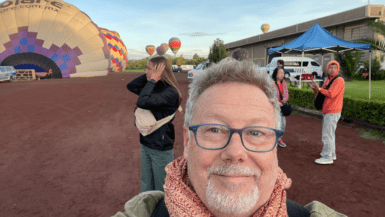

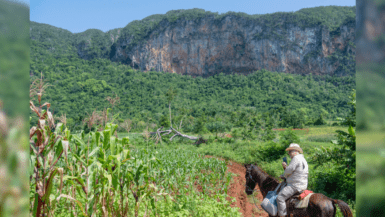

Leave a reply